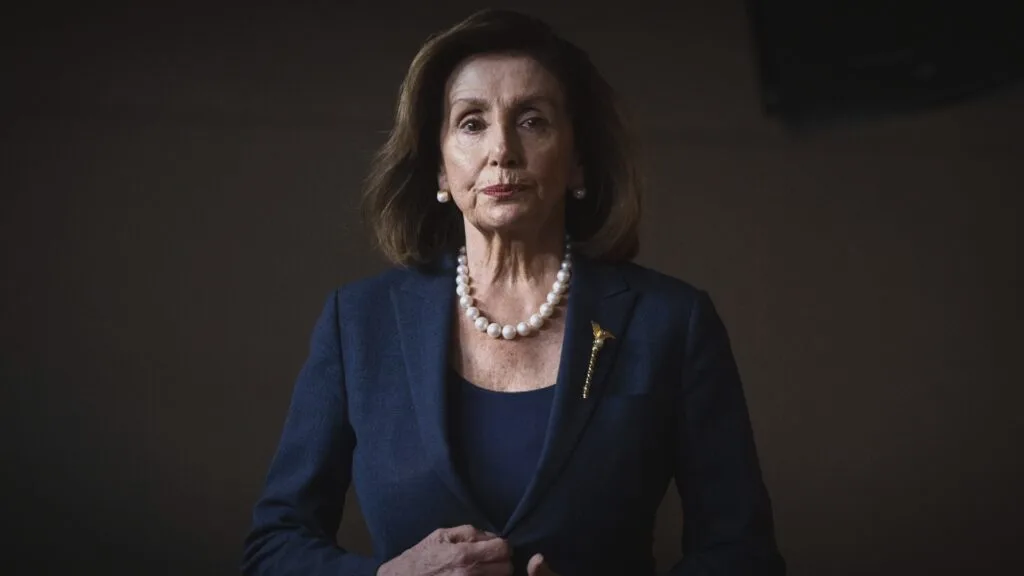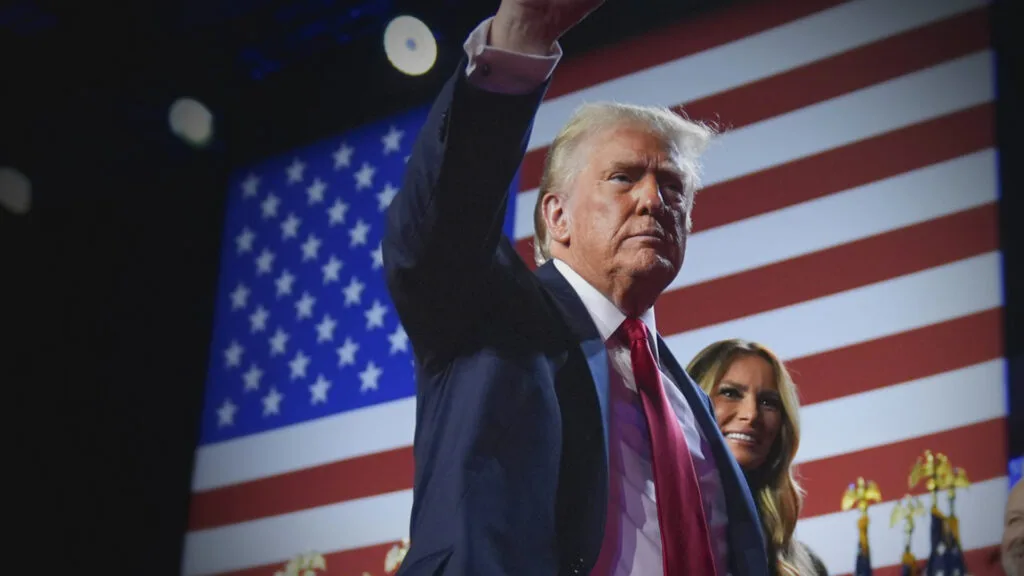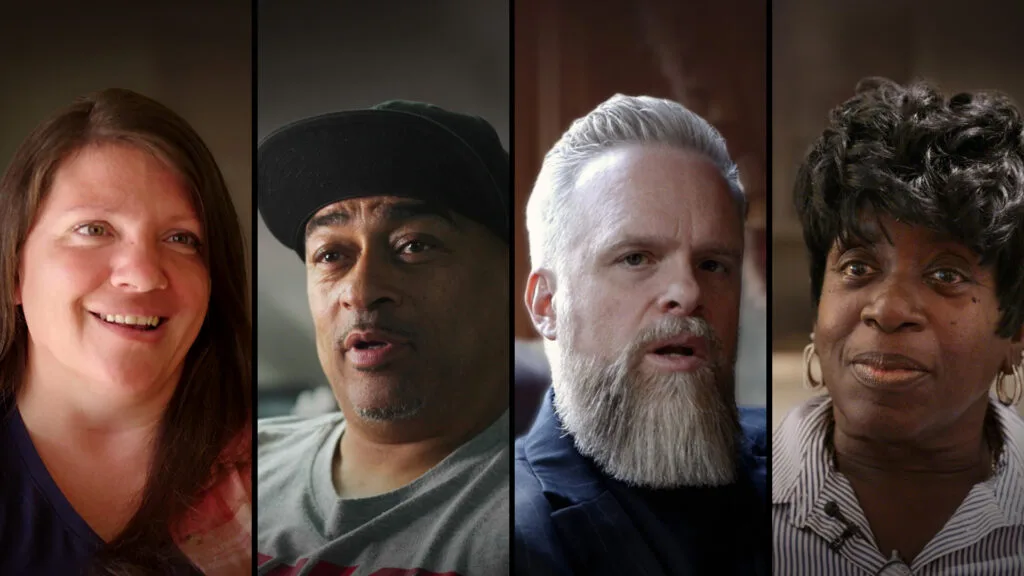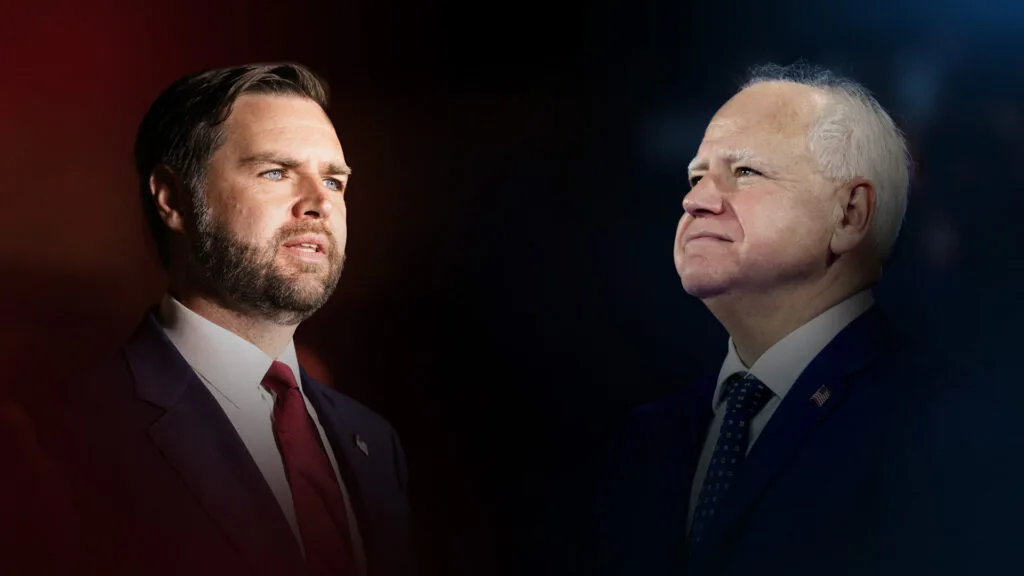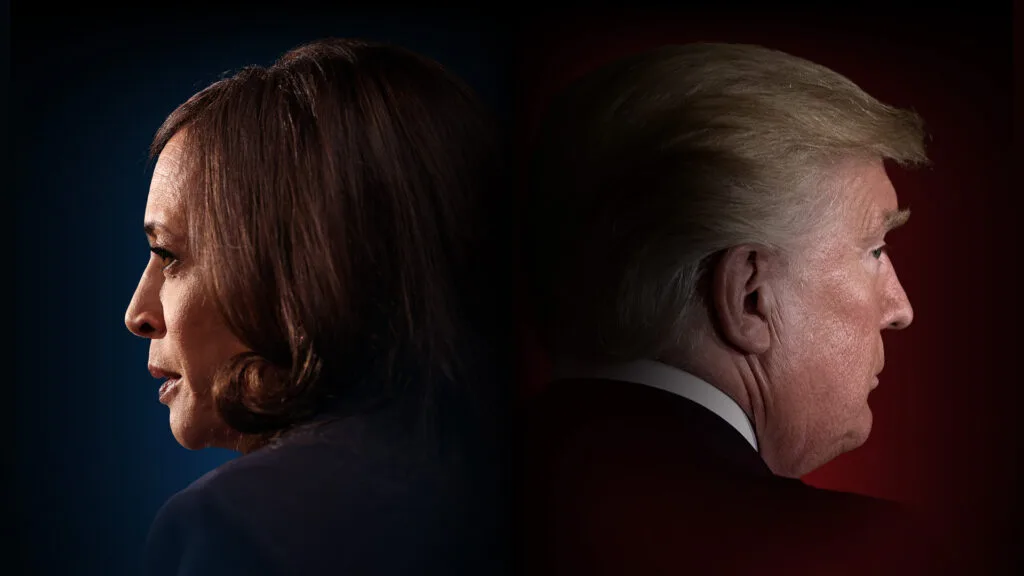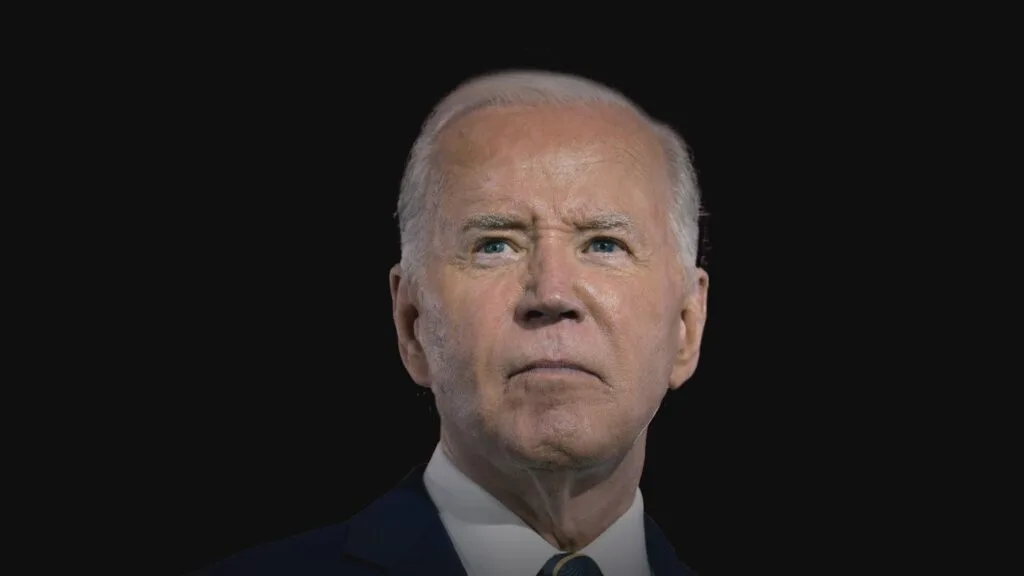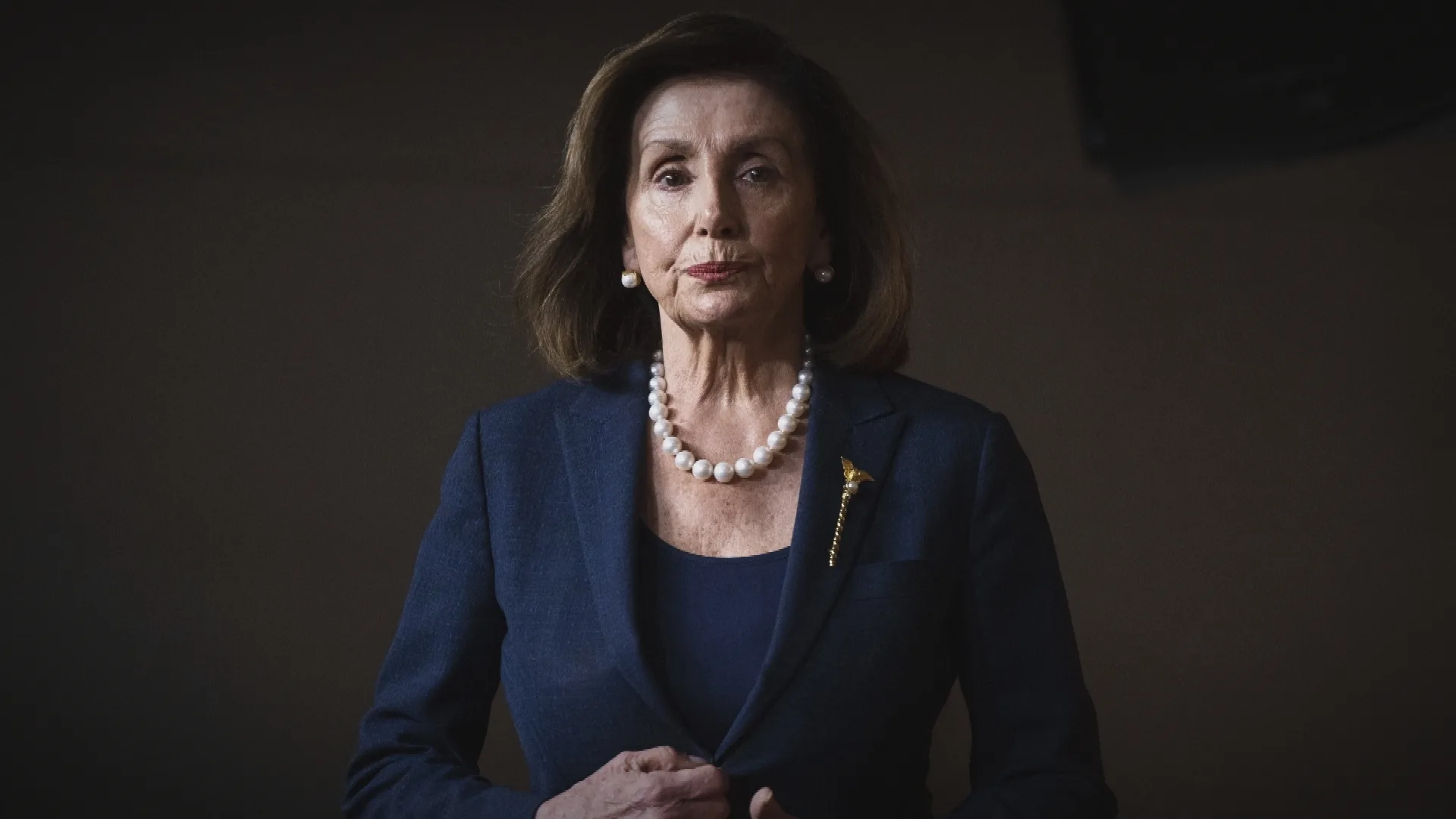‘A White-Knuckle Moment’ for Democracy: How Nancy Pelosi Responded as Jan. 6 and Its Aftermath Unfolded
March 22, 2022
Share
On Jan. 6, 2021, when a violent mob stormed the U.S. Capitol in an attempt to undermine the certification of Joe Biden’s presidential election, Nancy Pelosi was among their targets.
In scenes from Pelosi’s Power, the first documentary on the life and legacy of the first woman speaker of the House, rioters chant Pelosi’s name as they move through the Capitol building. Footage captures them shouting, “Where are you, Nancy? We’re looking for you,” and “Yeah, we’re coming, bitch,” before entering her office.
Susan Page, author of the Pelosi biography Madam Speaker, later asked Pelosi if she’d been afraid.
“Nancy said that they would’ve had a fight on their hands. They would’ve had a battle on their hands, because she’s a street fighter,” Page tells FRONTLINE in the opening moments of Pelosi’s Power, embedded above. “And then she lifts up her foot. And, you know, she always wears those 4-inch stiletto heels. And she points at her shoe and says, ‘Besides, I could’ve used these as weapons.’”
In the hours and days to come, Pelosi would fight — not against the rioters but against the leader who had fueled the insurrection through false claims about a stolen election.
“She really saw [then-President Donald Trump] as so reckless and dangerous,” says Molly Ball, author of Pelosi and a reporter on the new FRONTLINE documentary. “It was such a white-knuckle moment that, whatever the rules said, you just had to hold down the fort and make sure that things didn’t get further out of hand.”
On Jan. 7, as the above excerpt recounts, Pelosi called the Pentagon’s top general, Mark Milley, and asked about safeguards to prevent “an unstable president” from initiating any rash actions. Then Pelosi went to Senate Majority Leader Chuck Schumer (D-N.Y.) and with him called Vice President Mike Pence, another target of the mob, to ask Pence to invoke the 25th amendment. When Pence didn’t take the call, Pelosi moved toward impeachment.
“There was a total void of leadership in our country at that moment,” Judy Lemons, Pelosi’s chief of staff from 1987 to 2002, says in the above excerpt. “Nancy Pelosi was the one leading the country in that moment. She had to be the one dealing with this crisis. And that’s what she did.”
“She found herself in a singular position of power, with a singular responsibility, at this crucial and dangerous moment, and that was not an accident,” Washington Post columnist Matt Bai says at the end of the clip. “That was a long time coming.”
Pelosi’s Power, premiering Tuesday, March 22 at 9/8c on PBS, is the first documentary to explore Pelosi’s journey from her 1987 election as a freshman representative (D-Calif.) to the highest-ranking member of the U.S. House of Representatives. The 90-minute film draws on dozens of in-depth interviews: with Pelosi herself; with her family; with her staffers, Congressional colleagues and fierce opponents; with White House insiders; and with journalists and biographers who have chronicled the career of the woman who is now second in line to the presidency.
What emerges is a vivid portrait of one of America’s most powerful and polarizing political figures.
“She’s a no-holds-barred politician that was about partisan warfare 100% of the time,” former House Majority Leader Eric Cantor (R-Va.) says in the film.
Says Eugene Robinson of The Washington Post, “Nancy Pelosi has never been accused of bringing a knife to a gunfight.”
The documentary traces Pelosi’s approach to wielding power back to her childhood in Baltimore, where her father was mayor and a U.S. representative. It explores how Pelosi navigated what Lemons calls “entrenched paternalism and crude sexism” after being elected to Congress in 1987 as one of only 23 women in the 435-person chamber. And it investigates her ascent to the speakership as she fought for policies in support of her self-described lifelong ambition: creating a better future for “the children.”
“Nancy Pelosi came up in a historical era where you increasingly did see politics as combat,” Ball says in the documentary. “So she always said, ‘Every morning, I put on a suit of armor, eat nails for breakfast, and go out and do battle.’”
Including, as the documentary shows, with Donald Trump.
As the U.S. continues to navigate fallout from Jan. 6, and as questions swirl about whether Democrats and Pelosi will maintain control of the House in the 2022 midterms, Pelosi’s Power offers an illuminating window into the speaker: who she is, what drives her and why she believes democracy itself is at stake.
For the full story, watch Pelosi’s Power. The documentary premieres Tuesday, March 22 at 9/8c on PBS stations (check local listings) and on FRONTLINE’s YouTube channel. It will be available to stream in the PBS Video App and on FRONTLINE’s website starting at 7/8c. Pelosi’s Power is a FRONTLINE production with Kirk Documentary Group, Ltd. The director is Michael Kirk. The producers are Michael Kirk, Mike Wiser, Philip Bennett and Vanessa Fica. The reporter and producer is Jim Gilmore. The reporter is Molly Ball. The writers are Michael Kirk & Mike Wiser. Explore interviews with 30 sources from the making of the film on FRONTLINE’s website and YouTube channel as part of FRONTLINE’s ongoing Transparency Project.

Related Documentaries
Latest Documentaries
Related Stories
Related Stories
Explore
Policies
Teacher Center
Funding for FRONTLINE is provided through the support of PBS viewers and by the Corporation for Public Broadcasting, with major support from Ford Foundation. Additional funding is provided the Abrams Foundation, Park Foundation, John D. and Catherine T. MacArthur Foundation, Heising-Simons Foundation, and the FRONTLINE Trust, with major support from Jon and Jo Ann Hagler on behalf of the Jon L. Hagler Foundation, and additional support from Koo and Patricia Yuen. FRONTLINE is a registered trademark of WGBH Educational Foundation. Web Site Copyright ©1995-2025 WGBH Educational Foundation. PBS is a 501(c)(3) not-for-profit organization.
